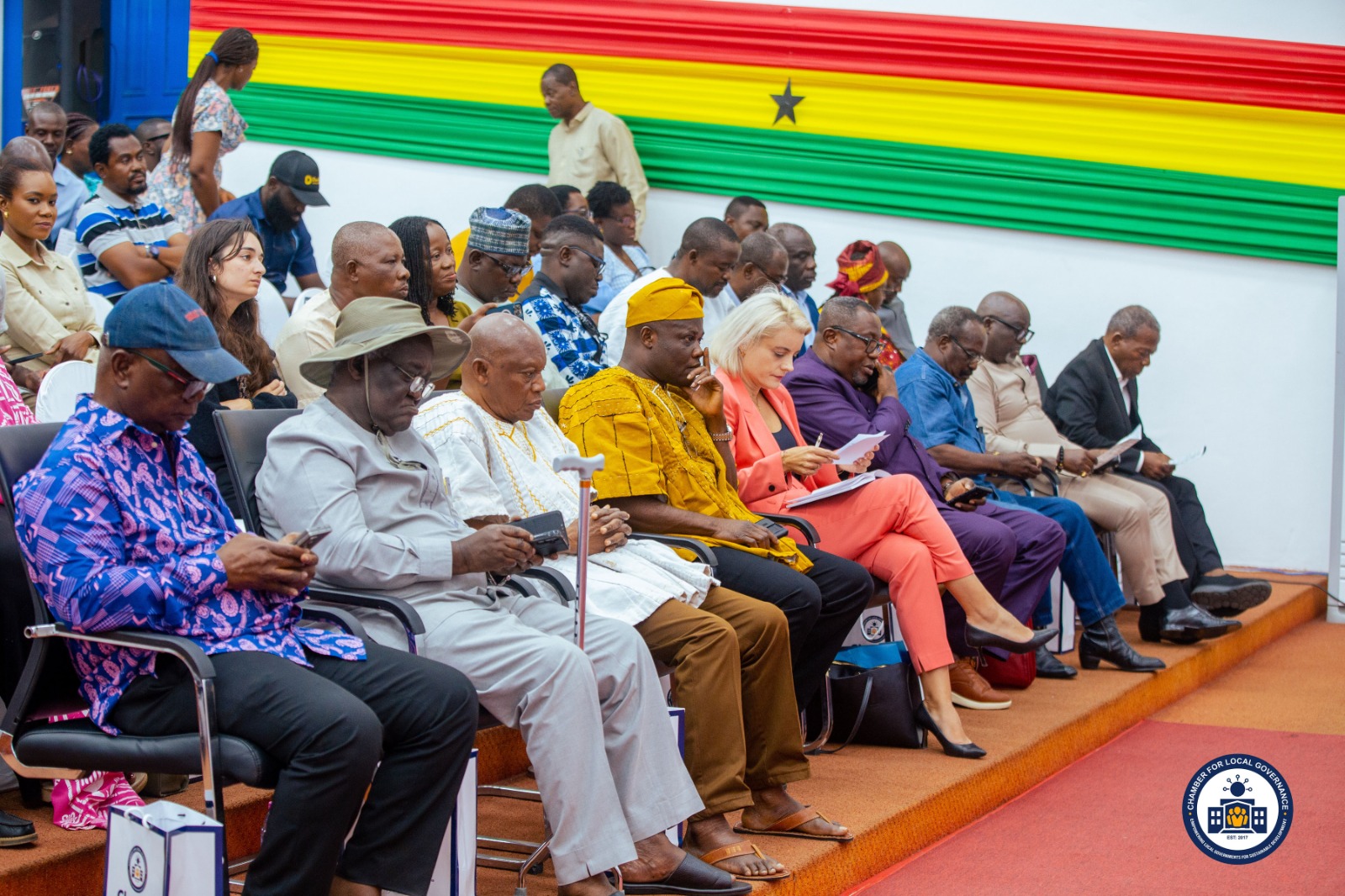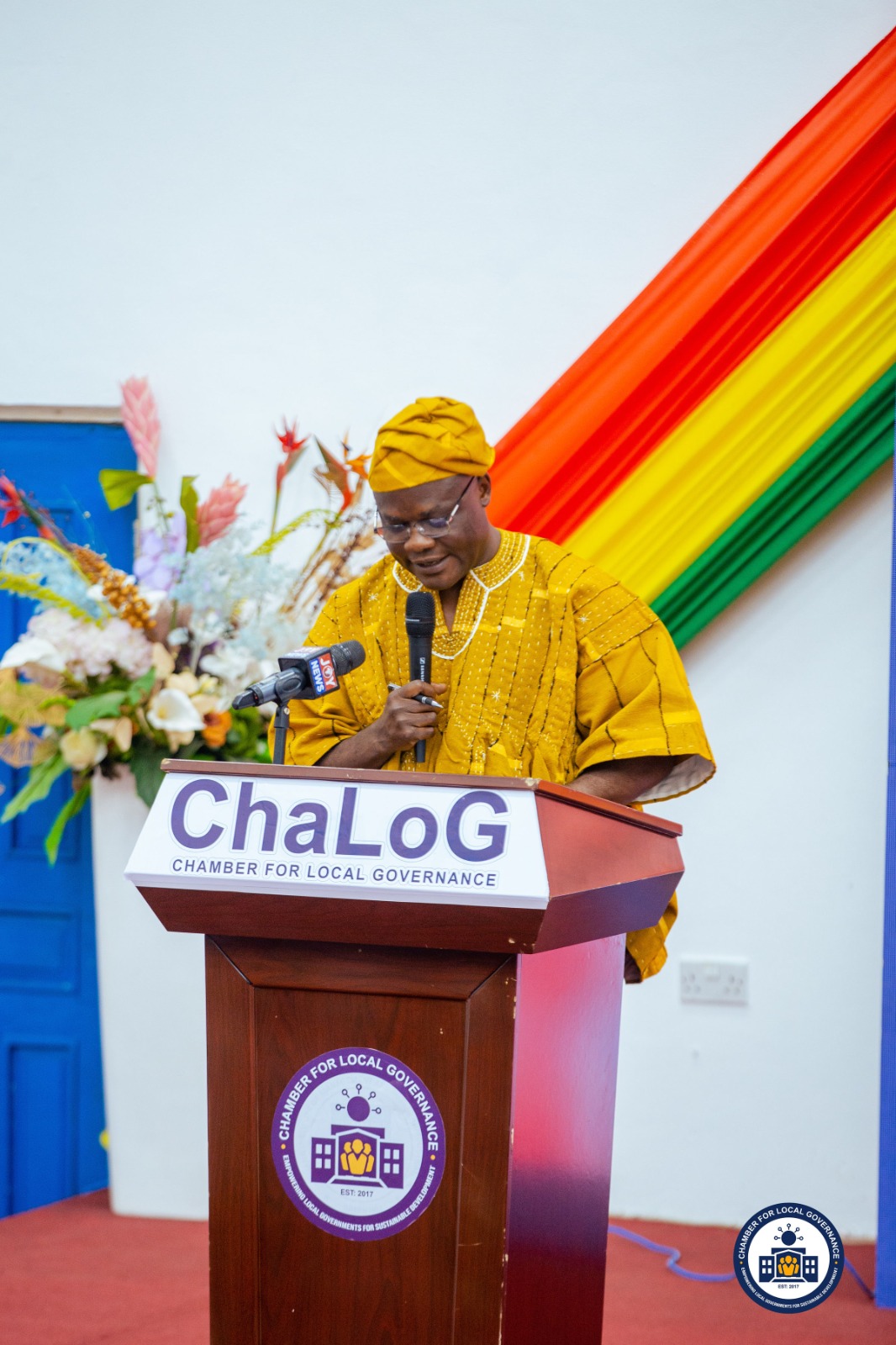The Minister for Local Government, Chieftaincy and Religious Affairs, Hon. Ahmed Ibrahim (MP), has reiterated government’s unwavering commitment to advancing Ghana’s decentralisation process in alignment with President John Dramani Mahama’s Resetting Ghana Agenda.
Delivering his remarks on Thursday, October 16, 2025, at the 2nd Edition of Professor Kwamena Ahwoi’s Lectures on Decentralisation held at the GIMPA GB Auditorium in Accra, Hon. Ahmed Ibrahim stated that government remains resolute in strengthening local governance structures to accelerate socio-economic development and bring governance closer to the people.
He explained that the administration is pursuing comprehensive reforms to empower Metropolitan, Municipal and District Assemblies (MMDAs) to deliver efficient public services, noting that the principle of Funds Follow Functions has guided the disbursement of over 80 percent of the District Assemblies Common Fund (DACF) for the first and second quarters of 2025 to support local development.
The Minister further indicated that government has prioritised the election of Metropolitan, Municipal and District Chief Executives (MMDCEs) on a non-partisan basis, consistent with constitutional provisions and the NDC’s 2024 Manifesto, to strengthen accountability and citizen participation in local governance.
Highlighting key policy interventions, Hon. Ahmed Ibrahim mentioned the review of the National Urban Policy, the launch of the Ghana Sustainable Cities Strategy, and the design of 24-hour economy modern markets to promote inclusive urban growth. He added that partnerships with development agencies such as the World Bank, EU, SECO, KfW, GIZ, and UNCDF continue to drive flagship initiatives including the SOCO Project, DACF-RFG Programme, and the Sustainable Cities Project.
Touching on environmental health, the Minister referenced the relaunch of the National Sanitation Day on 6th September 2025 and the validation of major policy frameworks, including the Environmental Sanitation Policy, the National Environmental Sanitation Strategy and Action Plan, and the Sanitation Sector Investment Plan, all aligned with national and global sustainability goals.
He concluded by underscoring the need for accountability and performance-based management at the local level, stressing that government will enforce sanctions guided by clear Key Performance Indicators (KPIs). “The status quo cannot continue. We must deliver results that reflect the aspirations of our people,” he emphasized.
Source: Darling Maame Efua Cann
MLGCRA Public Relations Unit
.jpeg)
.jpeg)

.jpeg)
.jpeg)
.jpeg)

.jpeg)
.jpeg)
.jpeg)
.jpeg)

.jpeg)
.jpeg)

.jpeg)
.jpeg)
